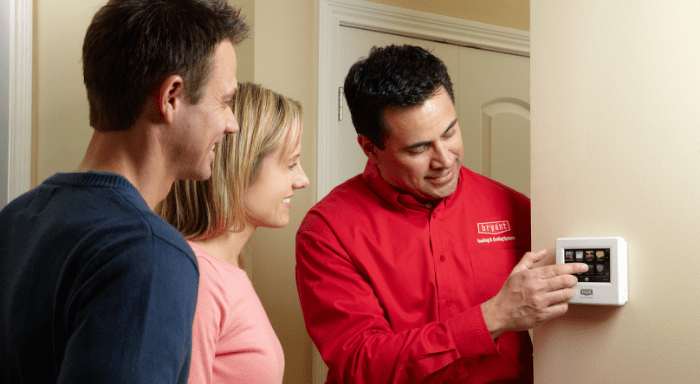Most people know that turning up the thermostat on their air conditioner to a higher temperature will result in cooler air blowing from the vents. However, there is a point at which increasing the temperature any further does not make the air cooler – it just uses more energy and costs more money. What is this ideal temperature? The 20-degree rule for air conditioners! Learn more about it in today’s blog post.
We’re all fully aware of how hot it can get during the peak of summer. It’s when we start feeling that humidity and heat that we want to go indoors, turn on the AC and chill out, waiting for summer to end. Even though the primary purpose of an air conditioning system is to keep us comfortable and cool during the scorching summer months, it shouldn’t be making us shiver. What’s more, if there were, say, 95 degrees outside and we were to set our thermostat to 70, we would be putting the AC system under considerable strain.
If you want to prolong the life of your system and avoid any unnecessary repairs down the line, consider following the 20-degree rule.
Related Reading: The Best Air-Conditioned Places in Frederick, MD
What’s the 20-Degree Rule?
In short, the 20-degree rule of air conditioning states that you should always keep your AC unit at no more than 20 degrees lower than the outside temperature. It means that, if the outdoor conditions are at 95 degrees, you should set your thermostat at no less than 75 degrees.
The logic behind this rule has to do with how the AC unit functions. When the system starts cooling space, it removes the heat but also dehumidifies the air. But when the system has to cool your home by over 20 degrees, its capacity to do both diminishes. As a result, your AC system has to work harder and uses more energy to do so. It, in turn, will lead to faster wear and tear, which can drastically reduce its lifespan.
Related Reading: How to Extend the Life of Your HVAC Unit
Health Concerns
Another reason why you shouldn’t expose yourself to sudden differences in temperature is that it increases the chances of catching a cold. Now, this higher risk of illness is not just a direct result of a lower temperature, per se. It is more of a combination of cooler temperatures and low humidity.
Ray Casciari, a pulmonologist at St. Joseph Hospital in Orange, California, said that in a low-humidity environment “your eyes tend to dry out, the mucous membranes in your nose dry out, and your lungs dry out, and you’re therefore much more susceptible to bacteria and viruses.” He also went on to say that “many viruses live longer and can replicate faster in colder temperatures. As a result, a highly contagious virus such as influenza can stay active and stick around for up to 24 hours on a hard surface.”
Alternatives
If lowering the indoor temperature by a maximum of 20 degrees is not enough to keep you comfortable, you have several options at your disposal.
For starters, you could purchase and install a larger AC unit. But while this system may be able to cope with cooling power, it will have difficulties in adequately dehumidifying your residence.
Another alternative would be to install a programmable thermostat. It will give you more control over which areas of your home will be cooled and which will not. During the day, for instance, you don’t necessarily need to cool your bedrooms. It will save you on energy costs and will also reduce the amount of wear.
Lastly, you can also hang blinds or drapes on south-facing windows when the sun is at its brightest. It will also help you mitigate the inside temperature of your home.
Conclusion
The 20-degree rule is an excellent solution to keeping you fresh during the hot summer months, all the while keeping your AC unit running smoothly and at peak efficiency. But if you find that 20 degrees are not enough, consider supplementing it with one or more of the alternatives presented above. If you have any issues or questions about your AC system, do not hesitate to contact us directly.


There are no comments yet.